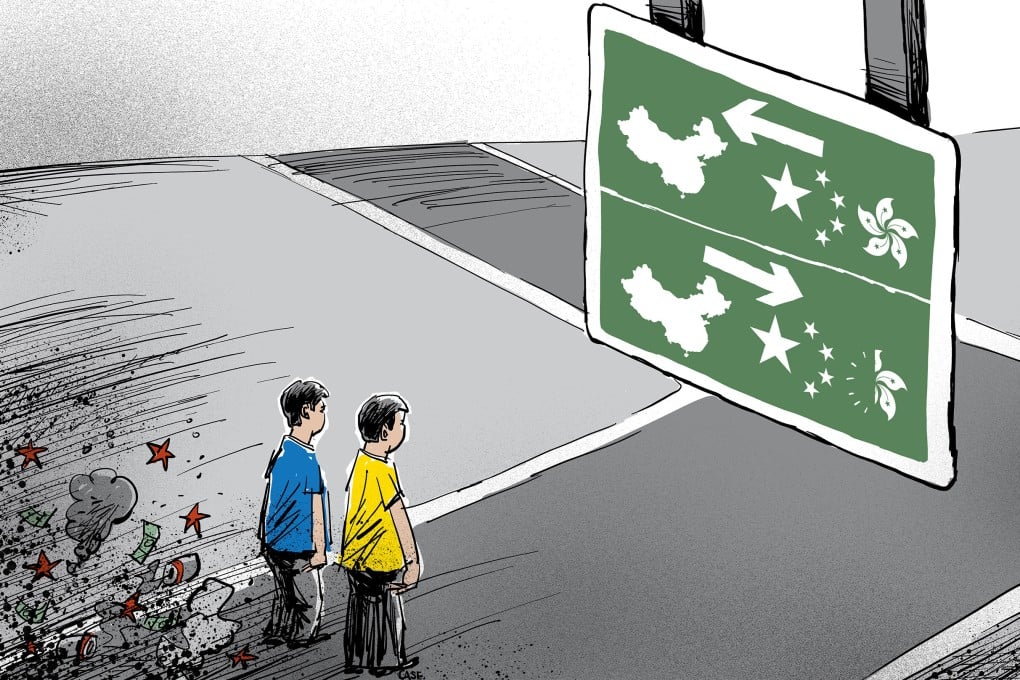Advertisement
Opinion | Why yellow, blue Hong Kong are both to blame for city’s identity crisis
- There is a growing risk the behaviour of local society will increasingly resemble that of the mainland as Beijing’s influence becomes pervasive
- Hong Kong needs to refresh its own system to make it more sustainable and avoid having Beijing intervene further in its affairs
Reading Time:4 minutes
Why you can trust SCMP
12

Hong Kong politics is often described as a contest between the blue and yellow camps. On the blue side are the conservative, pro-establishment forces, many of whom are people disillusioned by the West because of what they see as its growing bias against China.
Across the divide is the other Hong Kong, consisting of people who identify with what they perceive to be Western values. Some of them retain an emotional bond with the territory’s heritage as a British colony and wish for more distance for Hong Kong from the mainland.
This situation is all wrong. Dug into their trenches, both sides are missing the key point about Hong Kong. The point is that from here on, there are only two roads left on which to travel.
Advertisement
The first road will see Hong Kong people continuing to rule Hong Kong to a large extent. Cantonese remains the main language, and the city retains its distinctive culture and system of law, administration and social order, thus maintaining the local way of life.
On the second road, Hong Kong’s identity will become blurred. Mandarin will increasingly displace Cantonese as the key language, overtaking the local language as it did in Shanghai and Shenzhen. The behaviour of local society will increasingly resemble that of the mainland as Beijing’s influence becomes pervasive.
In other words, “one country, two systems,” which is what Road One is all about, will become “one country, one-and-a-half systems”, which is how Road Two is going to be.
Advertisement
Select Voice
Choose your listening speed
Get through articles 2x faster
1.25x
250 WPM
Slow
Average
Fast
1.25x

